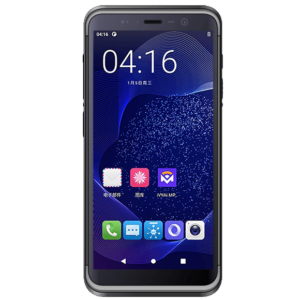When technologies such as PDA and RFID medical wristbands are applied in clinical nursing, what significant benefits do they bring to hospital management?
Firstly, these technologies assist in ensuring that nurses correctly follow medical orders. During ward rounds or when executing medical orders, nurses use medical PDAs to scan the barcode wristbands and barcode infusion cards of patients, verifying their information to prevent unnecessary errors. This technology enhances the accuracy of nursing care, providing safer medical services to patients.

Secondly, these technologies enable comprehensive tracking of the medical service process, strengthening collaboration between medical and nursing staff. Medical PDAs, with features like order prompt sounds and SMS functions, scientifically support busy clinical nursing work, reducing information transmission errors in medical language communication. Responsible nurses can promptly and effectively provide various treatment and care information to patients, fostering good nurse-patient relationships and motivating nursing staff.

Thirdly, these technologies drive the development and innovation of nursing management, intensifying quality control in nursing processes. Medical PDAs allow nursing supervisors to grasp the overall status of nursing work, displaying timely statistics on the workload of the entire department or a specific nurse, presented in weighted values. This quantification of nursing work facilitates deeper and broader management, advancing the digitalization process of hospitals.

In the medical industry, characterized by extremely low tolerance for errors, the demand for “efficiency” and “accuracy” is exceptionally high. By incorporating technologies like PDA and RFID medical wristbands into clinical nursing, not only does it enhance the efficiency of medical and nursing work, but it also reduces the risk of medical errors, contributing positively to the development of smart healthcare information systems. CILICO has been dedicated to the research and development of intelligent terminal products and exploring the needs of mobile informationization in the industry for many years. Through intelligent terminals, clinical data is centralized, analyzed, shared, and queried, aiming to improve the efficiency of medical and nursing staff and the quality of patient care, ultimately reducing medical errors and supporting the construction of smart healthcare information systems!

